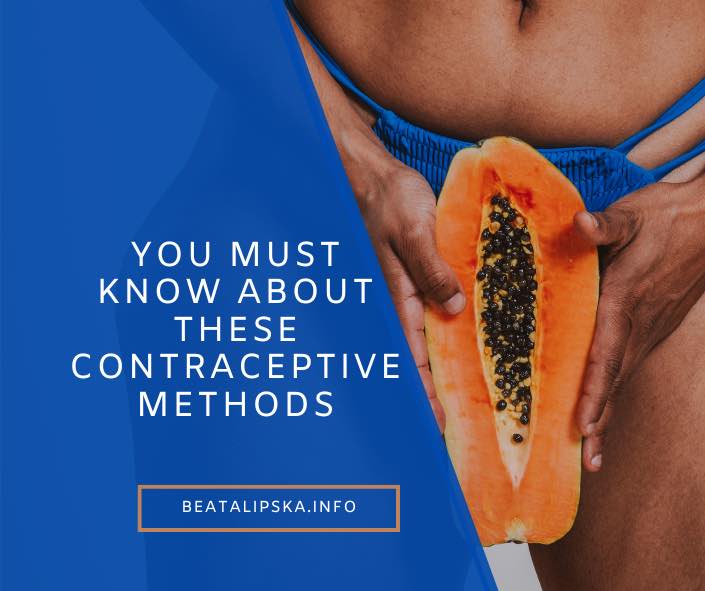In a world where discussions about intimacy and contraception are often shrouded in taboos, it’s crucial to embark on an open and candid exploration of these topics. There are Natural Contraceptive methods you don’t know about. Beyond the realm of traditional notions, intimacy isn’t solely defined by physical encounters. It’s a rich tapestry of emotions, connections, and choices that weaves through the fabric of our lives, whether we are navigating the path of relationships or embracing our independence as single individuals.
This article delves into the heart of these matters, unearthing the layers of intimacy and the responsibilities that come with it. But before we journey further, let’s pause and consider some questions. Does sex with penetration equate to intimacy? What are the various contraceptive methods available, and how do they influence our pursuit of emotional closeness and our sense of responsibility? I asked myself these questions while preparing this article for you. It’s about understanding that intimacy between people goes beyond just the physical aspect, whether you’re in a relationship or single. It presents various ways to foster deep connections. However, it also sheds light on a significant issue – the unequal burden often placed on women regarding their bodies and the consequences of sexual encounters. It emphasizes the importance of both men and women being actively involved in family planning decisions, whether you’re in a relationship or single.
Contraception: A Comprehensive Perspective
Contraception isn’t solely about preventing pregnancy; it’s about granting individuals and couples the authority to decide if and when they want to embrace parenthood. While familiar methods like birth control pills and condoms are widely recognized, this article delves into natural means of pregnancy prevention and alternative avenues for couples to connect. Additionally, it delves into the intriguing phenomenon of heightened female sexual desire during ovulation and the wisdom of abstaining from regular sexual intercourse during this time, instead focusing on alternative modes of connection.
Conventional Contraception Methods: An Overview
Brief Descriptions of Contraceptive Methods: Pluses and Minuses to Female Health
Implants: Implants are small, flexible rods inserted under the skin of the upper arm. They release hormones to prevent pregnancy. Plus: Highly effective, long-lasting (up to three years). Minus: May cause irregular bleeding.
Intrauterine Devices (IUDs): IUDs are small T-shaped devices inserted into the uterus. Hormonal IUDs release hormones to prevent pregnancy, while copper IUDs use copper to do so. Plus: Highly effective, long-lasting (3 to 10 years). Minus: May cause heavier periods (copper IUDs).
Injections: Injections involve receiving hormonal shots every few months to prevent pregnancy. Plus: Convenient (every 1 to 3 months). Minus: Irregular bleeding, potential weight gain.
Oral Contraceptive Pills (Combined Pill and Progestogen-Only Pill): These are daily pills that contain hormones to prevent pregnancy. Plus: Easily reversible. Minus: Must be taken daily, potential side effects like nausea.
Vaginal Rings: Vaginal rings are flexible rings inserted into the vagina. They release hormones to prevent pregnancy. Plus: Convenient (monthly), can be discreet. Minus: May cause vaginal irritation.
Barrier Methods (External and Internal Condoms, Diaphragms): Barrier methods physically prevent sperm from reaching the egg. Plus: No hormonal side effects. Minus: Must be used correctly every time.
Tubal Ligation and Vasectomy: Tubal ligation is a surgical procedure for women, and vasectomy is for men, both providing permanent contraception. Plus: Permanent, highly effective. Minus: Irreversible.Emergency Contraception: Emergency contraception (morning-after pill) is used after unprotected sex to reduce the risk of pregnancy. Plus: Available without a prescription, effective when used promptly. Minus: Not intended for regular use, potential side effects.
Ovulation Tracking Rings: These wearable devices, also known as fertility tracking rings, offer advantages and some limitations for monitoring and predicting ovulation. Pluses: Data Collection, Temperature Monitoring, Data Analysis, Prediction and Alerts, Cycle Tracking. Minuses: Accuracy, Cost, Learning Curve. Overall, ovulation tracking rings offer valuable insights into fertility but may not be ideal for everyone due to cost and comfort considerations, along with potential accuracy variations.
Fertility Tracker such as Lady Comp or Daisy: Hormonal cycle monitoring can be a natural and non-hormonal option for birth control, but it requires a high level of consistency, awareness, and diligence to be effective, and it may not be suitable for everyone, especially those with irregular cycles. It is essential to carefully consider your individual circumstances. Pluses: Non hormonal, No side effects, Minuses: Requires Consistency, Not Sustainable for Irregular Cycles.
Natural Contraception Methods and Enhancing Intimacy.
Let’s delve deeper into each of these intimate methods and provide more examples:
1. Tantric Sex:
- Method Overview: Tantric sex is an ancient practice rooted in Eastern traditions that prioritize emotional and spiritual connection between partners. It encourages slowing down the pace of sexual activity and focusing on building a profound bond.
- How it Works: During ovulation when the risk of pregnancy is higher, tantric sex offers a unique approach. Couples engage in extended foreplay, mutual eye gazing, synchronized breathing, and sensual touch to enhance emotional and spiritual intimacy without traditional intercourse.
- Example: A couple practicing tantric sex during fertile periods may begin with a session of deep eye gazing and synchronized breathing. They progress to gentle, non-penetrative touch, using techniques like feather-light caresses and body-to-body contact to build arousal and emotional closeness.
2. Massages and Loving Touch:
- Method Overview: Massages and loving touch involve physical contact between partners aimed at expressing love, affection, and desire. It emphasizes relaxation and emotional connection.
- How it Works: Instead of focusing solely on sexual intercourse during fertile periods, couples can opt for massages and tender touches. Effective communication about desires, boundaries, and consent is crucial for a satisfying experience.
- Example: A couple may choose a “massage night” during ovulation. They create a serene ambiance with candles and soft music. One partner takes the role of the masseur/masseuse, using scented oils and gentle strokes to provide relaxation and intimacy. They maintain open communication, ensuring both partners feel comfortable and valued.
In the soft candlelight, he gently massaged her shoulders, easing away the tension and creating a profound sense of intimacy between them.
3. Meditation and Emotional Connection:
- Method Overview: Meditation and shared spiritual practices are centered around enhancing emotional intimacy between partners. Engaging in mindfulness exercises and meditation together strengthens the emotional bond.
- How it Works: During fertile periods when couples may wish to avoid penetrative sex, they can opt for shared meditation sessions. This allows them to connect deeply on an emotional level and promote intimacy.
- Example: A couple practices meditation together during the fertile window. They create a tranquil space in their home with cushions and soft lighting. Sitting in a comfortable position, they close their eyes and begin a guided meditation. They may focus on love and connection, and as they meditate, they share their thoughts and feelings, deepening their emotional connection through mutual experiences.
These methods offer couples alternative pathways to maintain closeness and emotional intimacy while reducing the risk of pregnancy during fertile periods. Effective communication, trust, and mutual consent are essential to ensure a fulfilling and satisfying experience for both partners.
Imagine the amount of unwanted pregnancies or abortions would be avoided this way.
Understanding Heightened Desire During Ovulation
Many women experience a surge in sexual desire during ovulation, typically around the midpoint of their menstrual cycle. This heightened desire results from hormonal fluctuations, notably a surge in estrogen, which readies the body for potential pregnancy.
While succumbing to the allure of physical intimacy during these moments is tempting, if pregnancy isn’t the objective, exercising caution becomes crucial.
Let’s remember the importance of various tools and sex devises that can be helpful during ovulation. It is crucial to avoid exposing yourself to hormonal treatments solely for the limited period of fertility, which lasts for about five days each month.
Considerations for Different Situations
It’s essential to recognize that contraceptive needs may vary based on individual situations. For individuals in long-term, monogamous relationships, the approach may differ from those dating multiple partners. If you engage in sexual activity with multiple partners, using both a condom and a diaphragm can be a practical choice. The diaphragm can be inserted at home, providing an added layer of protection during the night. For couples in a long, monogamous relationship fertility tracker is a very safe option.
Shared Responsibility and Reflections
This article emphasizes the importance of shared responsibility in family planning. It underscores that the burden should not rest solely on women but should be a shared concern. Men, too, should engage in conversations about contraception and family planning decisions.
Conclusion: Celebrating Healthy Connections and Open Conversations
Think of human relationships as a big, colorful quilt. In this quilt, the strongest thread is healthy intimacy. It goes beyond just the physical stuff and dives into the deep feelings and spiritual connections that bring people together. This article has shown us all the different ways intimacy can make our lives better.
But there’s something important we need to talk about too. Sometimes, women have to deal with more of the responsibility when it comes to their bodies and what happens after having sex. That’s not fair. We should all share the responsibility when we make choices about having kids or not. It emphasizes the importance of both men and women being actively involved in family planning decisions, whether you’re in a relationship or single.
So answering the questions intimacy isn’t solely defined by sex with penetration. While physical closeness is one aspect, true intimacy encompasses a broader spectrum of emotions, connections, and shared experiences. It’s about feeling close, understood, and connected on deep levels, whether you’re in a relationship or single.
I do believe we should avoid harmful contraceptive methods and focus on a woman centered intimacy practice for 5 days out of 30 every month. Exploring Tantra with your partner and learning milion ways you can experience pleasure that doesn’t involve penetration.
Recognizing the prevalence of health challenges among women, including irregular menstrual cycles and ovulation ambiguity, underscores the importance of prioritizing health. Making health the primary life purpose is pivotal.
In my role as a nutritionist, 1:1 coaching becomes a transformative journey. Personalized guidance, tailored nutrition, and lifestyle advice empower individuals to take control of their health. It rectifies irregular cycles, fosters optimal reproductive health, and enriches life’s tapestry. Health, as the guiding principle, illuminates a purposeful, fulfilling life.
Now, as we talk about relationships and contraception (which means ways to not have a baby), let’s remember that sex isn’t a taboo topic. It’s a normal part of our lives and our health. We should be able to talk about it openly.
And don’t forget, sex is a beautiful and important part of being human. It helps us connect with our partner and also with ourselves. So, remember, it’s okay to have a healthy sex life, whether that’s with your partner or by yourself. It’s good for your relationships and your own happiness.
As you go on your journey of connecting with others and making choices about having kids, keep in mind that the beauty of human intimacy is at the center of it all. It’s something worth celebrating, treasuring, and sharing in ways that make your life and your relationships better.
with Love,
Bea
As they sat in the tranquil garden, their fingers intertwined in a meditative embrace, a profound sense of unity blossomed between them.
{}
In the heart of their shared tantra experience, they discovered a depth of connection that transcended the physical, merging their souls in an embrace of spiritual intimacy.
{}
Underneath the canopy of stars, they embarked on a journey of meditation together, their breaths synchronizing as they explored the boundless realms of emotional closeness.
{}
With each tantra ritual they performed, their connection deepened, intertwining not just their bodies but their spirits in a dance of profound intimacy.
{}
As they meditated together by the serene lakeside, their souls harmonized, creating an unspoken bond that words could never capture.
In this program we do not only talk about the diet but also about the mindset. I give you all the tools to overcome chronic disease and enjoy your health body long term.
What others say about this course:


